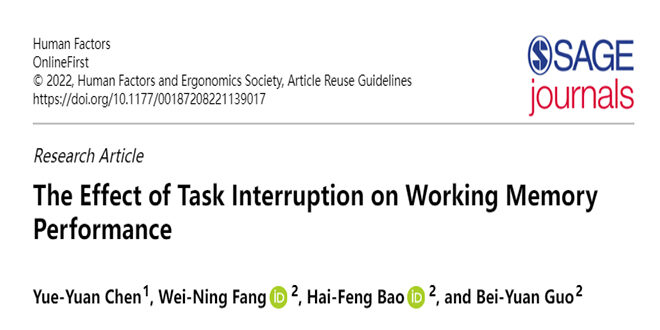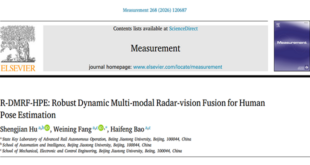Objective
This study used electroencephalography to explore the behavioral and electrophysiological effects of task interruption on performance.
Background
Task interruption is known to harm work performance, especially on working memory-related tasks. However, most studies pay little attention to cognitive processes by exploring brain activity and ignore the cumulative effect of sequential interruptions.
Method
Thirty-four healthy participants performed a spatial 2-back in three conditions: (1) interruptions with simple math questions, (2) suspensions with prolonged fixation cross, and (3) a pure 2-back. The measured outcomes comprise performance data, ERP amplitudes, EEG power, and subjective workload.
Results
Work performance decreased in the resumption trials, and cumulative interruptions had a more destructive effect on performance. EEG results showed that the P2 and P3 amplitudes induced by the 2-back task significantly increased after interruptions; theta and alpha power increased after interruptions. The P3 amplitude and alpha power induced by interruptions were significantly higher than that induced by suspensions.
Conclusion
Behavioral data revealed the disruptive effect of interruptions on postinterruption performance and the cumulative effect of interruptions on accuracy. Changes in ERP amplitudes and EEG power indicate the mechanisms of attention reallocation and working memory during interruptions. Larger P3 amplitudes and alpha power after interruptions than after suspensions suggested the inhibition of irrelevant information. These results may support the memory for goals model and improve the understanding of the effects of interruption on working memory.
Application
Focusing upon the mechanisms at play during the interruption process can support interruption management to ensure work safety and efficiency.
References:Yue-Yuan Chen, Wei-Ning Fang*, Hai-Feng Bao, and Bei-Yuan Guo. The Effect of Task Interruption on Working Memory Performance.HUMAN FACTORS DOI: 10.1177/00187208221139017
 复杂系统人因与工效学研究所
复杂系统人因与工效学研究所

